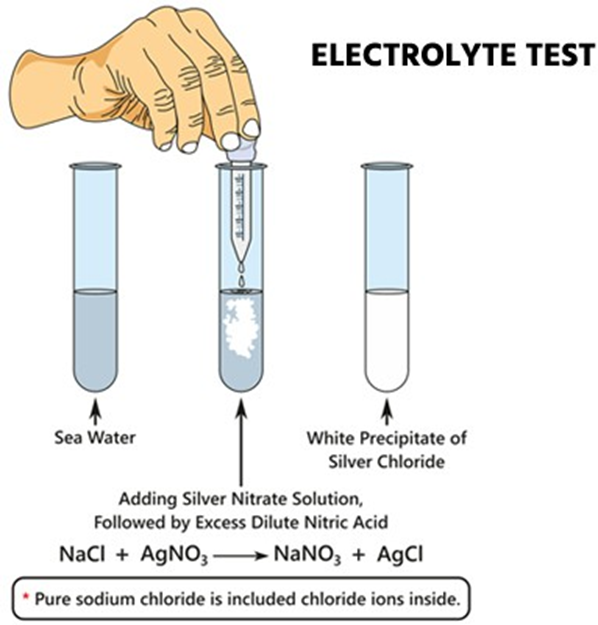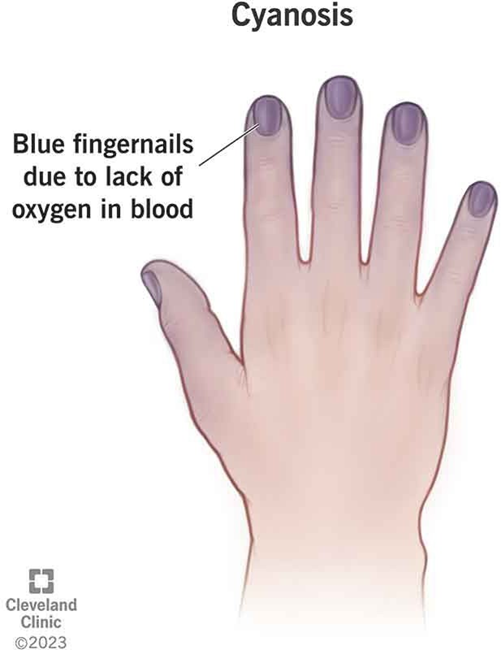A client reports a 2-day history of fever, vomiting, and diarrhea. The healthcare provider prescribes serum electrolyte levels to be obtained.
Reference Range:
Potassium (K+): 3.5 to 5.0 mEq/L (3.5 to 5.0 mmol/L)
Sodium (Na+): 136 to 145 mEq/L (136 to 145 mmol/L)
Which laboratory results should the nurse expect?
Serum potassium: 3.5 mEq/L (3.5 mmol/L), serum sodium: 142 mEq/L (142 mmol/L)
Serum potassium: 4.5 mEq/L (4.5 mmol/L), serum sodium: 140 mEq/L (140 mmol/L)
Serum potassium: 5.0 mEq/L (5.0 mmol/L), serum sodium: 138 mEq/L (138 mmol/L)
Serum potassium: 3.0 mEq/L (3.0 mmol/L), serum sodium: 149 mEq/L (149 mmol/L)
The Correct Answer is A
Choice A reason: The results are within the normal reference range for both potassium and sodium, which is expected unless the client's condition has led to significant electrolyte imbalances.
Choice B reason: A serum potassium level of 4.5 mEq/L is at the higher end of the normal range, which might not be expected in a client with vomiting and diarrhea, conditions that often lead to lower potassium levels.
Choice C reason: A serum potassium level of 5.0 mEq/L is at the upper limit of the normal range and could indicate hyperkalemia, especially in the context of severe dehydration.
Choice D reason: A serum sodium level of 149 mEq/L is slightly above the normal range and could indicate hypernatremia, which may occur in dehydration but would require further assessment and intervention.

Nursing Test Bank
Naxlex Comprehensive Predictor Exams
Related Questions
Correct Answer is D
Explanation
Choice A reason: While heart rate is important, it is not the most immediate concern when a client shows signs of cyanosis.
Choice B reason: Blood pressure is a critical vital sign but does not directly address the issue of oxygenation, which is suggested by cyanosis.
Choice C reason: Temperature is less relevant to the immediate assessment of cyanosis, which is often related to oxygenation issues.
Choice D reason: Respiratory rate should be assessed first as cyanosis is a sign of potential hypoxia, and the respiratory rate can provide immediate information about the client's breathing and oxygenation status.

Correct Answer is C
Explanation
Choice A reason: Offering positive reinforcement is a good practice in teaching, but it does not directly facilitate the learning of problem-solving strategies.
Choice B reason: Physical demonstrations are more suited to teaching psychomotor skills rather than problem-solving strategies.
Choice C reason: Simulation activities allow individuals to practice problem-solving in a controlled environment, which can enhance learning and retention of these strategies.
Choice D reason: Verbal analogies can aid in understanding concepts, but they are less interactive and engaging than simulation activities when it comes to learning problem-solving strategies.
Whether you are a student looking to ace your exams or a practicing nurse seeking to enhance your expertise , our nursing education contents will empower you with the confidence and competence to make a difference in the lives of patients and become a respected leader in the healthcare field.
Visit Naxlex, invest in your future and unlock endless possibilities with our unparalleled nursing education contents today
Report Wrong Answer on the Current Question
Do you disagree with the answer? If yes, what is your expected answer? Explain.
Kindly be descriptive with the issue you are facing.
